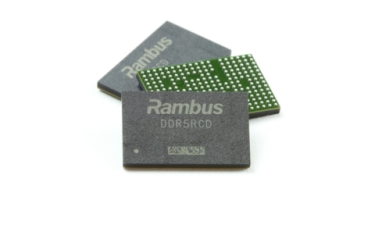The Rambus’ Gen4 DDR5 RCD is available today and has already started sampling to the major DDR5 memory module (RDIMM) manufacturers, and thus it will not be long before the next generation of 7200 MT/s DDR5 products hit the market.
"MT/s" means megatransfers (or million transfers) per second; this term is used as an accurate measurement for the effective data rate, or speed, of DDR SDRAM memory because MHz/GHz ratings are not a reliable comparison between varying RAM types, and because the transfer of data will occupy more than one clock cycle (as measured in Hertz).
And, to make sure it hits home, 7200 megatransfers is literally 7,200 million transfers or 7.2 billion - per second.
|
|
That's the speed of the Rambus Gen4 RCD DDR5 RAM, and it's designed to meet the new and rising demands of data centre workloads, ensuring your RAM has high bandwidth and performance.
"With memory being an essential enabler of server performance, the need for greater memory bandwidth continues its meteoric rise driven by demanding workloads like generative AI,” said Rambus COO Sean Fan “The Rambus Gen4 DDR5 RCD is the latest demonstration of our commitment to providing leadership products ahead of the market need to support our customers’ current and planned server platforms.”
“Advanced workloads, led by the breathtaking pace of innovation in AI, are driving an accelerated roadmap of new server platforms for the data centre,” said IDC VP computing semiconductors Shane Rau. “DDR5 RCDs are critical to support the performance, power, and signal integrity required of RDIMMs in AI servers."
Rambus DDR5 memory interface chips including the RCD, Serial Presence Detect (SPD) Hub and Temperature Sensors are important in achieving a new level of performance for leading-edge servers. With over 30 years of high-performance memory experience, Rambus is renowned for its signal integrity (SI) / power integrity (PI) expertise. This expertise helps enable DDR5 memory interface chips delivering superior performance and reliability for data center server RDIMMs.











































